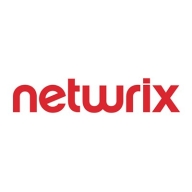


Netwrix Endpoint Protector and Forcepoint Risk Adaptive Protection for DLP compete in providing data loss prevention solutions. In terms of user satisfaction, Netwrix Endpoint Protector has the upper hand regarding pricing and support, while Forcepoint Risk Adaptive Protection for DLP is seen as superior due to its advanced features, justifying its higher cost.
Features: Netwrix Endpoint Protector excels in data visibility and control, focusing on preventing data leaks effectively and integrating seamlessly with various IT environments. Forcepoint Risk Adaptive Protection for DLP offers dynamic risk-based adaptive protection, advanced threat detection, and response, giving it a technological edge. Both products deliver robust features, yet Forcepoint’s adaptive response stands out.
Ease of Deployment and Customer Service: Netwrix Endpoint Protector is recognized for its straightforward deployment and responsive support, facilitating integration into existing systems. Forcepoint Risk Adaptive Protection for DLP offers comprehensive deployment options, though with a steeper learning curve. While Forcepoint provides deployment flexibility, Netwrix is notable for ease of setup and excellent customer service.
Pricing and ROI: Netwrix Endpoint Protector is cost-effective with a positive ROI, suitable for budget-conscious organizations. Forcepoint Risk Adaptive Protection for DLP has a higher initial setup cost, justified by advanced capabilities. Its effectiveness in reducing data breaches may offer significant long-term savings, attracting those prioritizing security over initial costs.



Cloudflare is a highly-regarded Content Delivery Network (CDN) and a Distributed Denial-of-Service (DDoS) protection solution. The robust global connectivity cloud platform that is Cloudflare ensures users are able to connect to the Internet quickly, securely, and reliably. Cloudflare is one of the world's largest networks in the marketplace today. Using Cloudflare, businesses, educational entities, NGOs, vloggers, bloggers, and anyone else with an internet presence can experience more secure, faster websites and applications.
Currently, there are millions of Internet locations on Cloudflare, and the Cloudflare network
continues to grow every day by the thousands. The solution is able to fulfill the requests for
millions of websites seamlessly and serves on average 45 million HTTP requests per second.
Cloudflare has safe, secure data centers in close to 300 cities worldwide to ensure every
client request is filled as quickly as possible. It is Cloudflare’s edge network that makes this
possible by keeping content and other services as close to each client as possible, so the
information requests are always only seconds away.
Many organizations that work in democracy, civil society, human rights, or the arts are able to
access Cloudflare's highest levels of protection for free via Project Galileo. Additionally, official
election websites can be secured from hacking and fraud through Cloudflare’s Project
Athenian, also at no additional cost.
Cloudflare can also help organizations of all sizes develop a robust zero-trust strategy to
ensure the highest levels of productivity and profitability. Employees, stakeholders, and end users have a greater level of satisfaction and overall improved user experience, which can, in
turn, result in higher revenues and overall ROI. Zero-trust and BYOD (bring your own device)
access ensure end users and employees always have the best resources and technology
available to them at all times.
Cloudflare benefits
Cloudflare has many benefits. Some of its most valuable benefits include:
- Faster load times
- Robust DNS security
- Intuitive cloud Web Application Firewall (WAF)
- Free universal SSL
- Image enhancement
- Automatic browser caching
- Next-generation cloud load balancer
- Accelerated Mobile Pages (AMP)
- Rate limiting
- Minification
- Zero-trust capabilities
- Cost-effective
- Reduced carbon footprint
Reviews from real users
“Many websites require an SSL certificate because they sell stuff and want SSL. Cloudflare
comes with an SSL certificate built in. It's automatic. You sign yourself up for Cloudflare, and
an SSL certificate automatically protects your website. If you have a connection between your
website and your host, the server, Cloudflare, and the host, you don't necessarily need a
certificate.” Spencer M., Owner at Tech Exchange
“What I like best about Cloudflare is that my company can use it to trace and manage
applications and monitor traffic. The solution tells you if there's a spike in traffic. Cloudflare
also sends you a link to check your equipment and deployment and track it through peering,
so it's a valuable tool.” Daniel P., Network Engineer at Ufinet
“The most valuable feature of Cloudflare is the GUI. You are able to control the solution very
well through the interface. There is a lot of functionality that is embedded in the service.” PeerSpot user, Competence Center Manager at a tech services company
Forcepoint Risk Adaptive Protection for DLP offers dynamic security measures tailored to data protection needs, ensuring sensitive information is safeguarded efficiently.
Forcepoint Risk Adaptive Protection for DLP is designed to provide a balanced approach to data loss prevention by adapting security measures based on real-time risk assessment. This innovative system prioritizes protecting sensitive information while allowing for seamless workflow integration, making it a suitable choice for organizations looking to enhance their data protection strategies.
What are the key features of Forcepoint Risk Adaptive Protection for DLP?Forcepoint Risk Adaptive Protection for DLP is particularly effective in industries with stringent data protection requirements such as healthcare, finance, and government. It adapts its security posture to the specific risks faced in these sectors, addressing compliance mandates and safeguarding sensitive information efficiently.
Content Aware Protection
Scanning data in motion
Monitor, control and block file transfers. Detailed control through both content and context inspection.
Device Control
USB & peripheral port control
Lockdown, monitor and manage devices. Granular control based on Vendor ID, Product ID, Serial Number and more.
Enforced Encryption
Automatic USB encryption
Encrypt, manage and secure USB storage devices by safeguarding data in transit. Password-based, easy to use and very efficient.
eDiscovery
Scanning data at rest
Discover, encrypt and delete sensitive data. Detailed content and context inspection through manual or automatic scans
We monitor all Data Loss Prevention (DLP) reviews to prevent fraudulent reviews and keep review quality high. We do not post reviews by company employees or direct competitors. We validate each review for authenticity via cross-reference with LinkedIn, and personal follow-up with the reviewer when necessary.